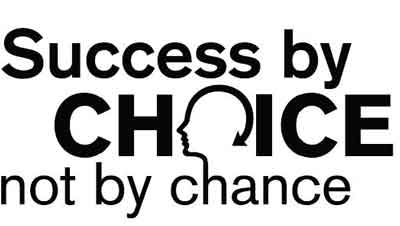It’s almost midterms at IVC, so everyone, instructors and students alike, is on edge. Over the past week, several of my colleagues have bemoaned their students’ lack of understanding of basic college concepts– not the classroom content, but the soft skills so needed for success in an American college. Here in the USA, it is simply not enough to learn the material and get good grades. In fact, that is only one part of the overall college success package. While I have taught in various educational institutions, I don’t pretend to know every single American school culture. Nonetheless, at least in the California Community College, school is a job with all the requirements that suggests such as showing up on time, participating fully, and meeting curriculum requirements.
Today’s blog arises from the ashes of the instructor frustration burning hot around me this week. I thought it could be helpful for my students’ and all students’ futures to share five truths that college instructors live and grade by.
 Fun is a bonus, not a requirement!
Fun is a bonus, not a requirement!
If you happen to be having fun, if you have an engaging instructor, if you have the opportunity to do exciting activities or play enjoyable games, if you genuinely favor the topic – that’s all bonus, not required. College is not supposed to be frivolous even when it is fun. College is a serious life-preparing endeavor. And like life, having fun in college is not guaranteed.
Learning hurts. You have to do new activities, often repetitiously, that you may or may not really care about. You have to change the way you think about things, both big and small. You have to spend hours and hours reading, writing, and studying when you would rather be soaking in the sun at the beach, playing video games, or talking with friends. You have to do what someone else requires you to do when she requires you to do it. Overall, this can be painful. Expect it.

Stop griping about being bored.
Stop whimpering at how difficult it is.
Stop expecting your instructor to entertain you or motivate you.
In college, having fun is a bonus, not a requirement!
 Homework is not optional!
Homework is not optional!
Homework assignments are designed to give students the opportunity to review, practice, and incorporate the class concepts. In college, few instructors assign “busy work” (work just to keep students occupied without any inherent value). Instructors are busy people trying to both fulfill their own dreams of helping others while struggling to make a decent living in an underpaid and under-appreciated profession. Therefore, every assignment assigned usually has a long-term or ultimate purpose for the class.
When you don’t do the homework or when you complete it with a lackluster effort (yes, this is a real word! Vocabulary can be fun! Find fun where you can!!), you don’t build the necessary knowledge or skills to meet the classroom objective. Therefore, your grades aren’t as high as they could be, you don’t have the foundation for the next level, and you irritate your instructor, all at the same time! Most instructors value diligent hard work over innate brilliance. In my own classes, it is almost impossible to pass the course, regardless of how intelligent one may be, without completing the homework.

If you are going to spend the time, money, and effort to attend college today, why not just decide to complete, consistently if not enthusiastically, all of your homework for your classes?
Doing homework is not optional; it is required for college success.
 Following directions is imperative!
Following directions is imperative!
Every instructor has his or her own visions for the assignment, for the class, and perhaps even for the whole department. In most schools, instructors have something called “academic freedom,” which is the freedom to choose how to teach the course material based on their own expertise, experience, or preference. Therefore, the instructions given by each and every instructor will vary in some manner, sometimes a little but sometimes a lot.
Think about assignment instructions like a map to a specific destination that is only in the mind of the instructor, kinda like a treasure map. If you follow the directions, then you can reach the “X marks the spot,” find the hidden treasure, and enjoy the rewards of your discovery. However, if you don’t follow the map, then you might end up in the jungle being chased by King Kong! (There’s a new King Kong movie out in theaters, and I just love that misunderstood big guy!) When you don’t follow clearly given directions, you may not achieve the desired goal of the activity, thus wasting both your own time and your instructor’s time as well.
But wait Mrs. C, you might ask, what about those directions that are not clearly given? What about when you don’t understand what the directions are, where the map is directing you, or even what you are looking for? Great questions and sadly, this does occur quite often. What should you do then? Read on to then next truth for the answer!

Following directions is an essential aspect of prosperity in college!
Following directions is imperative to be successful in college and life.
 Questions Facilitate Learning!
Questions Facilitate Learning!
Instructors are not mind readers. Yes, they have experience, so might be able to anticipate problem areas. Yes, they have worked with many students with similar problems. Yes, they themselves have been students. Nevertheless, instructors are not mind readers. They do not know what is confusing to students. They are not aware of every single student’s personal background, academic knowledge, emotional state, or anything else for that matter. They do not know which of the seemingly clear directions is actually a confusing mess. They do not know which of the myriad details might send comprehension for a loop. Again, instructors are not mind readers.
Articulating questions is an integral part of the learning process. One reason this is so important is because, as I’ve mentioned, instructors are not mind readers, so they need feedback from the student in the form of questions and comments to help personalize the lesson to a particular group, class or individual. Perhaps more importantly, students need to ask questions to truly learn the material. Asking questions helps to create the mental pathways that help the information stick. It also makes the learning more active rather than passively accepting information. Asking questions also indicates to an instructor that the student is present, engaged, and even learning! Asking questions in imperative for learning! Some classes encourage students to participate in classroom discussion; others have online forums. Some instructors have office hours; others are only available through email. Regardless of the possible venue to ask questions, most if not all instructors value questions as an essential part of learning.

Ask questions,
lots of lots of questions,
and enjoy as your success increases!
Asking questions is an integral part of college success.
 Acceptance & empathy not permission!
Acceptance & empathy not permission!
Actions have consequences. College is not prison. Classroom instructors are not jailers. Students have the right to attend or not, do the homework or not, and actively attempt to pass the class or not. In California, students have the right to fail the class. As an instructor, I can recommend, cajole, and even require students; however, I cannot force them to do something. I genuinely feel with and for my students when they are stressed because of financial problems, emotional difficulties, or immigration challenges.
I accept that students will do whatever (within their legal rights) they wish. I truly empathize when life’s challenges cause problems with their school work. Therefore, when a student asks me if she can leave early because she has a doctor’s appointment or if he can skip class because he has an immigration hearing, my answer must, of course, be yes; I even build into my core curriculum stop gaps for when these situations arise. There will always be consequences, though.
When a student tells me he will be absent because something came up and I say ok, somehow that “ok” translates in student language to mean that being absent has no repercussion because the instructor gave me permission. When a student tells me she can’t finish her paper on time, and I say I understand, someone somehow that “I understand” translates in student language to mean that there will be no grade penalty for the late work because the instructor gave me permission. When students tell me that the course required reading is so difficult because they are taking 17 units of course work and I say I agree, somehow that “I agree” translates in student language to mean that not reading the materials is not required because the instructor gave them permission to skip it because of the difficulty. However, acceptance of students’ choices and empathy for students’ troubles does not translate into instructor agreement that this action will produce a positive result.
Class guidelines, curriculum requirements, and course expectations are not dependent on accepting or empathizing. They exist as a bar of achievement. College success requires you to fulfill the stated course requirements regardless of whatever life situations you may find yourself.

Please don’t confuse caring with permission.
Acceptance of your behavior and empathizing with your dilemmas does not mean permission to disregard the class requirements.
 Instructors are people, not robots!
Instructors are people, not robots!
It staggers my mind sometimes when I realize that many students honestly don’t realize that I am a living breathing person with needs of my own. I do not only exist for their educational benefit. I actually have a life outside of my interaction with my students.
This comes up in various ways. One of the most frustrating occurrences is during breaks. Embracing the idea that questions facilitate learning, students often forgo the idea that following directions is imperative. I explicitly tell them that everyone, including myself, gets to take a break during breaks. Furthermore, in every single class discussion, I give multiple opportunities for students to ask questions. More often than not they don’t. However, when we take a break, everyone wants to talk to me. Despite the fact that I’ve been teaching for over an hour and I too need a restroom and drink break, everyone wants to ask me questions about the lesson, the homework, the due dates, whatever.
Why? Are they simply putting their needs before mine? Do they not understand that I too am a person who needs down time? Are they so afraid of the other students that asking a question in class paralyzes them? Honestly, it could be all of the above. This does not just happen in my class during breaks. Students often do not consider the instructor’s stated preferences about communication, required due dates, or even effort expended in teaching. Needless to say, this is very aggravating for the instructor.
So remember, every interaction you have with your instructor affects your success in that class. You have needs as a student. Your instructor also has needs as an instructor.









